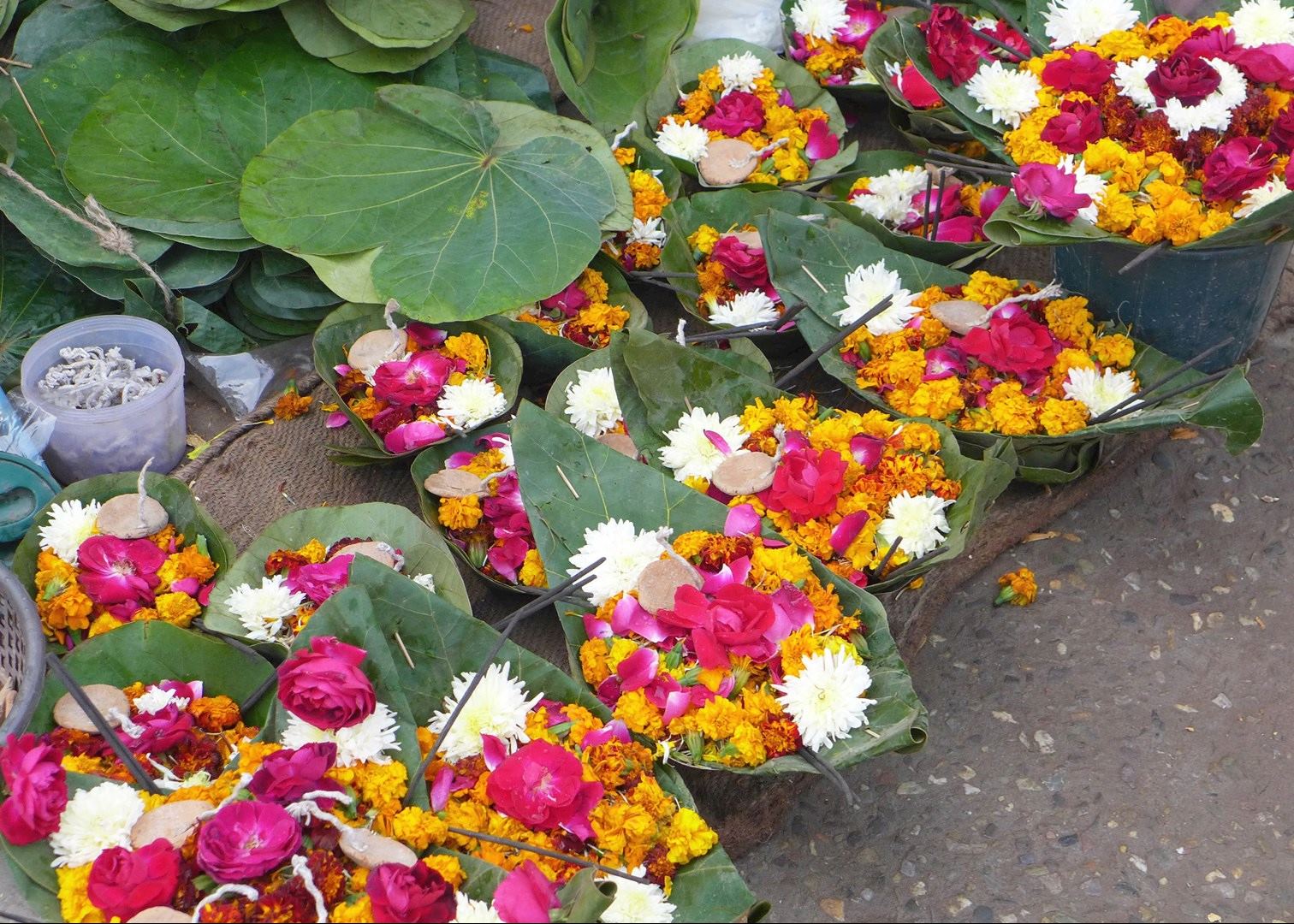India is well-known as a festival-loving country, where we celebrate our holidays with emotion and devotion. Our celebrations have spiritual importance and are marked by a variety of rites. Festival poojas performed throughout all festivals such as Diwali, Holi, Onam, and Pongal have great spiritual significance. Indians undertake numerous festival pooja at all festivals, and flowers are used for festival pooja. Flowers are considered fortunate and sacred because they represent purity and charity. The flowers are full of positive energy and appear very appealing and gorgeous. The aroma it emits is incredibly soothing and mind-calming, and it has a significant influence on those who smell it and has a gloss on it. That is why flowers are commonly utilised in Indian culture to perform festival puja. Flowers for festival puja must be fresh, pure, and natural.
Periwinkle
All of the Hindu deities are worshipped with periwinkle flowers. Furthermore, the plant can treat diabetes, sore throats, skin infections, and eye discomfort.
Lotus
Lotus is India’s national flower, and flowers have more mythical significance and link to Indian Gods and Goddesses than in any other culture on the planet. In Indian mythology, Goddess Lakshmi is represented as sitting on a pink lotus, whereas Goddess Saraswati is described as sitting on a white lotus. Lotus is associated with Lord Brahma, the creator, who is sitting on a lotus growing from Lord Vishnu’s navel. Lotus symbols play an essential role in yantra patterns and are used in numerous styles of ornamentation in more secular situations.
Parijata
Because it is a Vishnu flower, the roots of the Parijita flower are in heaven. This flower is thought to be Lord Vishnu’s, Goddess Lakshmi’s, and their incarnations’ favourite. According to Hindu mythology, this tree arose due to the gods and demons churning the seas. Lord Indra discovered this tree and transported it to heaven, where its lovely and fragrant blooms bloomed beneath the tree and delighted the gods.
Hibiscus
Goddess Kali is the Hindu religion’s embodiment of fierceness, and the flower wonderfully symbolises her attitude. The brilliant red represents the powerful Kali Maa, and the flower shape represents her mouth.
Palash
These flowers, also known as a test or forest flames, are commonly linked with the Goddess Saraswati. The deity adores white flowers, and a pooja invoking her blessings without Palash flowers is deemed insufficient.
Marigold
Marigold flowers are prominent in festival puja so they are associated with the Sun and symbolise brightness and pleasant energy. Lord Vishnu and Goddess Laxmi are also associated with marigold flowers. Lord Shiva, Goddess Shakti, and Lord Ganesha also give marigold flowers. Order these pretty flowers online for puja.
Clitora Ternatea
They are commonly known as the aparajitha flower and are quite lovely to look at. If you want to be married as soon as possible and you worship Lord Ganesha for that purpose, these are the flowers you should give him to make him pleased. One of Lord Ganesha’s favourite flowers and they may be acquired online or grown in your backyard provided the temperature circumstances are favourable. They are not expensive and widely accessible throughout India, so purchase them before worshipping Lord Ganesha.
Rose
Maa Durga favours red and yellow roses, especially on the fifth day of Navratri. She manifests as Skandamata, and her favourite flowers are red and yellow roses. Offering the deity a yellow rose brings good fortune and calm into one’s life; order roses online.
Datura
Datura is Lord Shiva’s most favoured flower since it was the Datura flower that grew from his chest while the ocean was churning when he took the poison. During his worship, Datura is donated to Lord Shiva to help him overcome undesirable emotions such as wrath, ego, and envy.






